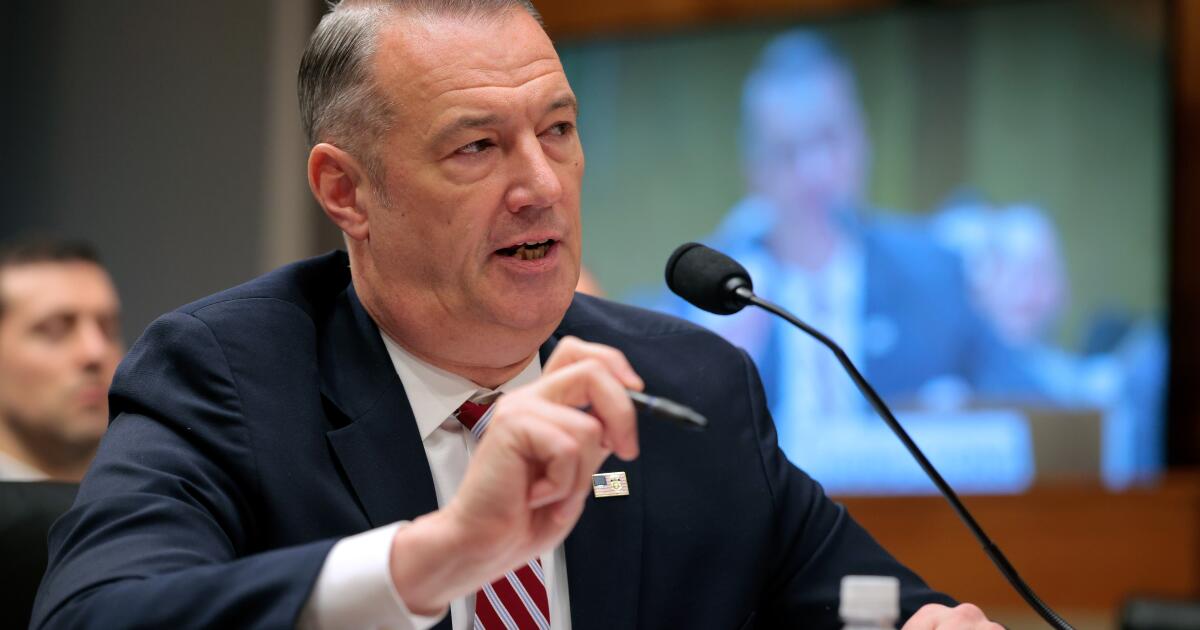ICE whistleblower documents reveal deep cuts to training program
WASHINGTON — New whistleblower documents detail substantial cuts by the Trump administration to the training requirements for new immigration officers.
Among the cuts are the elimination of practical exams, use of force and legal training courses, and an overall reduction in training time, contrary to an official’s testimony to Congress earlier this month.
The documents, provided to Sen. Richard Blumenthal (D-Conn.) by whistleblowers from the Department of Homeland Security, were publicly revealed ahead of a forum Monday afternoon with congressional Democrats — the third in recent weeks probing what the members view as abusive and illegal tactics used by federal agents.
Lauren Bis, deputy assistant public affairs secretary at DHS, said no training hours have been cut.
“Our officers receive extensive firearm training, are taught de-escalation tactics, and receive 4th and 5th Amendment comprehensive instruction,” she said. “The training does not stop after graduation from the academy. Recruits are put on a rigorous on-the-job training program that is tracked and monitored.”
Blumenthal’s office also disclosed the identity of one whistleblower: Ryan Schwank, an attorney who most recently served as an instructor for new Immigration and Customs Enforcement recruits at the ICE Academy within the Federal Law Enforcement Training Center in Georgia. Schwank, who resigned Feb. 13, is scheduled to testify at the forum.
Schwank is one of two whistleblowers who made a confidential disclosure to Blumenthal’s office last month regarding an ICE policy allowing agents to enter people’s homes without a judicial warrant.
In excerpted quotes from Schwank’s prepared testimony shared with The Times, he calls the training program “deficient, defective and broken.”
“Deficient training can and will get people killed,” he wrote. “It can and will lead to unlawful arrests, violations of constitutional rights, and a fundamental loss of public trust in law enforcement. ICE is lying to Congress and the American people about the steps it is taking to ensure its 10,000 new officers faithfully uphold the Constitution and can perform their jobs.”
Blumenthal’s office did not confirm whether Schwank or the other, still anonymous whistleblower provided the documents released Monday in a 90-page memorandum from minority staff of the Senate Permanent Subcommittee on Investigations.
The documents show ICE has eliminated more than a dozen practical exams that ICE officers previously needed to graduate. In July 2021, a cadet needed to pass 25 practical exams to graduate. Now, nine are required.
Eliminated exams include “Judgment pistol shooting,” “Criminal encounters,” and “Determine removability.”
“All of these are now instead evaluated, if at all, mainly by open-book, multiple-choice written exams and without any graded practical examinations,” the memo states.
Comparisons between the program’s syllabus table of contents and general information sections from July 2025 — before the surge in hiring — and this month show that ICE appears to have cut whole courses, such as use of force simulation training, U.S. government structure, criminal vs. removal proceedings, and use of force.
Earlier this month, acting ICE Director Todd Lyons testified to Congress that while the agency had reduced the number of training days to 42 from 75, “We went from five days a week to six days a week. Five days a week was five eight-hour days. We’ve gone to six 12-hour days.”
But the documents appear to contradict Lyons’ testimony.
“The schedules reflected on these documents indicate that current ICE recruits receive nearly 250 fewer hours of training than previous cohorts of recruits,” the memo states.
The training reductions come as ICE plans to bring up more than 4,000 new Enforcement and Removal Operations officers this fiscal year, which ends in September. One of the documents notes that ICE had graduated 803 new officers in 2026 as of Jan. 29 and projected 3,204 more graduates by the end of the fiscal year.
In a written statement, Blumenthal encouraged more whistleblowers to come forward.
“We know about the Trump Administration’s decimation of training for immigration officers and its secret policy to shred your Constitutional rights because of the brave Americans who are speaking out today,” he wrote. “They are coming to Congress because we have the responsibility to not only bear witness to these crimes, but to do something to make sure they don’t happen again.”
